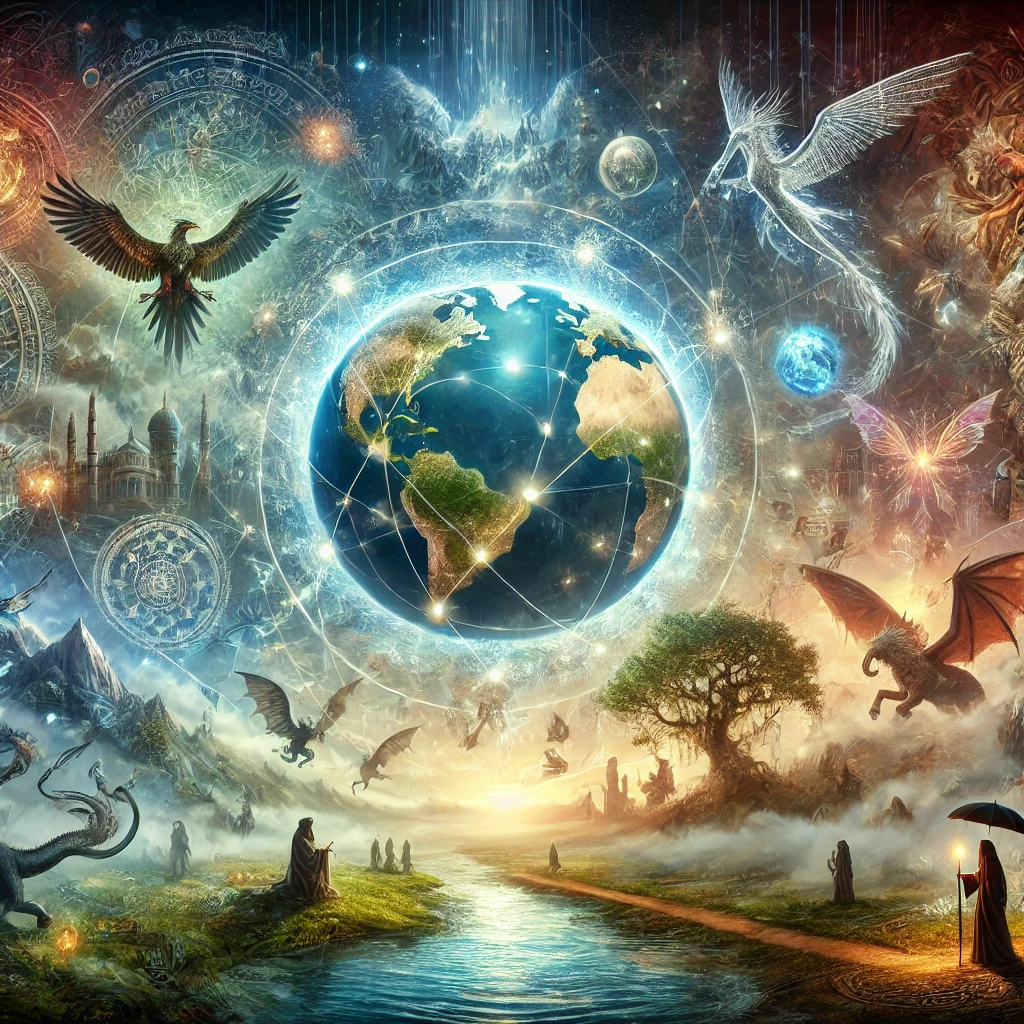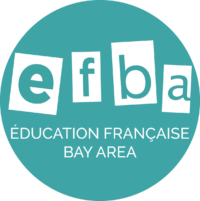THIRD CULTURE KIDS
Children of the Third Culture is a Virtual French Kids Cultural Program which introduces youths to the practice of cultural appreciation, and intercultural comprehension. Through fun virtual activities, children will be transported to discover different cultural practices throughout the world, all while making connections to their own culture. Culture and traditions can vary from country to country, however children will discover that we all share things in common!

Legends of the World and Magic 101 Workshop
Event Overview
As 2024 comes to a close, the EFBA team is delighted to present the third workshop of our program “Children of the Third Culture”. This innovative activity takes its name from the eponymous book by David Pollock and Ruth van Reken. This is an opportunity for us to introduce kids to cultural appreciation and intercultural understanding.
This program is free for students attending our part-time French classes at EFBA. Children and teens not enrolled in our programs can register for a $19 fee, which helps finance our organization’s projects.
Event Description
We will meet several French speakers from many different cultural backgrounds who will tell us a legend that originates in their homeland. These fascinating stories will transport us to faraway places, where each legend will immerse us in the rich oral traditions of the world. Prepare to dream, imagine, and travel through these captivating stories that will spark your curiosity!
These speakers’ stories will be followed by a Magic 101 workshop (they will learn magic tricks) to enchant the end of our session.

Teaching Objectives
Through this activity, participants will:
- Have the opportunity to meet French speakers from different cultures, which will help broaden their understanding of cultural diversity.
- Better understand how culture and environment influence memories and personal experiences.
|
Did you know?
Oral traditions are at the heart of cultures from all over the world, and help to share knowledge, legends and stories from one generation to another. In West Africa, for example, “griots” are storytellers, musicians and poets who have kept the memory of the Mandinka people alive for centuries. Through their stories, they tell of families, clans, kings and heroes, ensuring that history often absent from written texts is kept alive. The oral tradition is also very strong in the Caribbean, with fantastical stories where the characters, often anthropomorphic animals like the famous Anansi, teach life lessons. Anansi, an African character, is cunning and mischievous. He crossed the Atlantic with enslaved people, and his stories are still told today, especially in Haiti, Jamaica, and other French-speaking Caribbean islands. On the other side of the globe, in French Polynesia, oral legends are just as important. According to these stories, the Polynesian islands were created by gods and mythical characters like Maui, a demi-god who could control the sun, and appears frequently in these stories. The elders told these stories as songs, called me’e, and they are still recounted as part of traditional ceremonies. These stories and oral traditions, even though they are very different from one region and one people to another, have a common aspect: they are vectors for cultural transmission, of knowledge but also of moral values and ethics. The role of the storytellers, be they African “griots”, Caribbean “rakonté” or Polynesian “tahu’a”, is essential in teaching and preserving cultural identity. During our event, you will have the opportunity to hear fascinating stories that stem from these oral traditions. These stories, shared orally across the generations, will invite you to travel through many cultures and eras, while sparking your curiosity for the diversity of stories from all over the world. Prepare to dream, reflect, and explore these enchanted universes through our guests’ stories: |
Details
When: Saturday, December 14, 2024, 10:00 am-11:30 am PST
Schedule of the event:
10:00 to 10:30 am : Meeting with each speaker
10:30 to 11:30 am : Magic 101 Workshop
Target audience: Children and teens ages 6 and up. All French levels are accepted, but please note that the stories told at the beginning (during the first 30 minutes) will be most accessible to students with a good level of French. The Magic 101 workshop is accessible to everyone.
During the visit, you will need:
- A reliable computer (or tablet) with both webcam (video) and microphone (audio) capabilities.
- Children will need a few simple objects for Magic 101. The list will be sent to you by email at least two days before the activity. The objects will be things you already have around the house (a deck of cards, a coin, etc.).
Prices & registration:
Regular price: $19
Special price: Free for students enrolled in EFBA’s afterschool program in 2024-2025.

To Learn More…
Our newest cultural program takes its name from the eponymous must-read book by David Pollock and Ruth van Reken. “Third culture kids (TKCs) is a term describing children who have spent their developmental years in a country that differs from their own nationality. Although TKCs share common experiences with child immigrants due to the bridging of cultures, there is a distinction. TKCs typically do not permanently relocate, or receive legal status in their host country. Additionally, TKCs understand that they will one day leave their new home, enduring a painful separation from friendships, familiarity, and their world.
TKCs are raised in an environment that is never fully the realm of their parents’, or of the one that they currently reside in. Though TKCs lack full immersion into these worlds, they naturally adopt certain practices from both cultures. The results are TKCs that experience connections to both of their cultures, yet feel continually out of place in either one due to their unique multiculturalism.
This estrangement, situated at the merger of two or more cultures, is the “third culture” that connects children living an internationally mobile lifestyle. The third culture creates magical bonds between people reared in this way, transcending nationality, and race as individuals identify with the common experience. Due to their worldviews, TKCs cannot be understood within the limiting framework of a basic definition of culture. Instead, TKCs depict how culture is extremely complex, and includes shared experiences.
In adulthood, TKCs benefit from an awareness of diverse perspectives, and a three-dimensional view of the world. Engrained with a deep interest and respect for all cultures, they appreciate differing perspectives even if they are not shared. Throughout their lives, TKCs find themselves able to build rapport with individuals from around the globe, proving that a less nationality focused, inter-connected, tolerant, world is possible.
Note: The term Third Culture Kid should not be utilized as a blanket term, as certain families may not identify with the expression.
| DATE | DESCRIPTION |
|---|---|
| Saturday, October 30, 2021, 10:00 am-11:30 am PST | On Saturday, October 30th EFBA welcomed French speakers from diverse cultures (South America, Asia, and more) to learn about the different ways of celebrating the dead around the world, in the spirit of discovery. Even if the theme is not the most joyful, our workshop covered this topic with sensitivity and lightheartedness! |
| Sunday, March 6, 2022, 10:00 am-11:30 am PST |
Costume Festivals Around the World On Sunday, March 6th 2022 we will discover costume festivals around the world from diverse cultures and traditions, that share these commonalities: Celebration, joy, and fun! Participants will discover new customs, and learn from French speakers. Let the party begin! |
Is something off? Suggest an edit here
